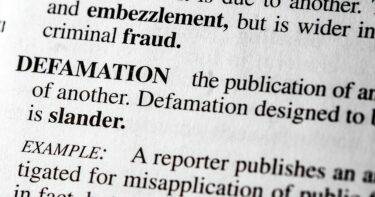
07
Mar 2025
Guide to Child Maintenance: Understanding Legal Agreements
Where parents do not live together and one parent takes on most of the day-to-day care for a child, it is usually the case that the other parent will make regular payments to them, known as child maintenance.
This financial support is generally paid until a child reaches 16 or until they finish A-levels or equivalent. The courts prefer that parents agree on the amount to be paid between themselves wherever possible. Your family lawyer will be able to negotiate on your behalf to try and reach an agreement.
Child maintenance is intended to go towards everyday care costs, including food, clothing and accommodation. It does not include payments for extra-curricular activities.
Agreeing on how much child maintenance will be payable
If the amount of child maintenance cannot be agreed upon, then you can ask the government’s Child Maintenance Service to work out how much should be paid. This is done by looking at the paying parent’s gross income and any benefits they may receive. Other expenses such as pension payments and other children are taken into account. A formula is then used to calculate how much the paying parent will be required to pay each week.
The number of nights that the receiving parent has the child for is also considered, along with any other relevant circumstances. This means that if the receiving parent has the child overnight once a week, the amount payable will be reduced by 1/7th. That parent will be expected to pay for the costs of looking after the child for that day and night, to include paying for food and nappies.
If the paying parent lives overseas or has a weekly income in excess of £3,000, the courts can be asked to make a child maintenance order, as the Child Maintenance Service has a cap on the amount of maintenance it can require someone to pay.
You can also ask the court for additional money for your child, for example, if they have special needs or you want payments for their education.
Here at Chadwick Lawrence we have a dedicated Family Law team here to help you with Financial Provision for Children.
What happens if child maintenance is not paid?
If child maintenance payments stop, you are advised to try and speak to your child’s other parent to see if there is a valid reason for this. If payments are not resumed, you can ask the Child Maintenance Service to collect future payments. They can take payments from the paying parent, for example, by asking their employer to pay some of their salary directly to the Child Maintenance Service under a deduction from earnings order.
You can also arrange for payments to be made through the Child Maintenance Service on a permanent basis, using their collect and pay service. There is a charge for this service, but it means that the authority will know if payments are missed or stopped. They can then take enforcement action if necessary. This could include sending bailiffs, disqualifying the parent from driving, adding a charge to property and even imprisonment in very extreme cases. Information can also be shared with credit agencies.
The Child Maintenance Service also has the power to ask for a lump sum deduction order so that money can be taken from the defaulting parent’s bank account, or a regular deduction order so that a regular sum can be taken. This could be to clear arrears as well as to make the weekly payments.
Get in touch
For expert legal advice on family law about child maintenance, contact Chadwick Lawrence today. Our specialist family law solicitor team is here to help with any questions or issues you may be facing. We offer consultations over the phone, via video call or in person at one of our offices across West Yorkshire.
Call us: 0800 015 0340
Email us: family@chadlaw.co.uk
- Like this ? Share with friends





